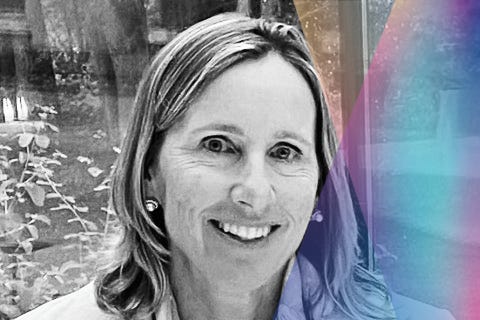070: Sylvia Kistler Thompson – American Estonian philantropist, helping to keep the Estonian memory alive
“The more economically successful Estonia is, the bigger threat it is to the repressive bear next door. We need to protect Estonia by having deep economic and social ties with the rest of the Western world, alongside the political ties, such as NATO and the EU.”
Kuula 🎧 Spotify / Apple Podcasts / Google Podcasts
Sylvia Kistler Thompson is an American Estonian philanthropist and the President of Kistler-Ritso Foundation. Sylvia was born in the United States to an Estonian mother Olga Ritso, who was an eye doctor, and a Swiss father Walter Kistler, who was an precision instrumentation engineer.
Over the years, Sylvia and her husband Andy Thompson have been the champions and sponsors of Vabamu, Museum of Occupations and Freedom based in Tallinn. Vabamu – where this discussion takes place – is the largest privately funded museum in Estonia.
The Kistler-Ritso Foundation has made generous contributions to the Stanford University Library and has supported Baltic studies at Stanford and elsewhere in the United States.The family has also supported projects, events, books, and films aimed at introducing Estonian culture and history, such as Arvo Pärt’s 2014 concert in Washington, DC, the book and film The Singing Revolution, and another film called To Breathe as One.
In this podcast, you’ll hear us focus on a variety of thought-provoking topics:
Biggest lessons learned from her parents and about the Estonian community in the U.S. growing up
How has her understanding of cultural identity evolved over the years
First visit to Estonia in 1976
A bookworthy story of her mother, Olga Ritso, who had to be an immigrant – twice
The purpose of Kistler Ritso Foundation and about the past, present, and future of Vabamu.
Select quotes
„The culture at home was European in many ways. My parents, although they both held US passports, and US passports only, always considered themselves as immigrants, and would often say to me: ‘We are immigrants, but you, you are the real American’.”
“My parents both loved freedom. My mother loved her country, she loved Estonia. Remembering back to the Estonian days, everything that was in Estonia was the best [for her], even the chocolate, but she loved freedom even more. Which is why she emigrated before the second Soviet invasion.”
“I’d say, for my Estonian identity, 1990 was probably a turning point. Andy and I were married in 1990 in Switzerland, and that was right when the Berlin wall fell. So for the first time my relatives in Estonia were free to travel outside the country, and almost all of them came. They quickly earned the nickname The Rolling Estonians, because they were very enthusiastic, many of them came in national costume, they danced very well, and clearly really enjoyed the experience.”
“When I graduated high school I took a gap year, and I lived in Switzerland for a year, went to school and learned French. That was a year when I greatly strengthened my Swiss connection and my Swiss identity, familiarity with Switzerland.”
“In retrospect, I probably should have done electrical engineering, because I was far nerdier than I realized, I suppose. Didn’t mind doing problem sets, and I really-really dislike writing papers, so I’m not sure why it took me so long to decide. But I did end up being an engineer in the end.”
“My mother always loved her country, she really loved Estonia. When Estonia finally became free again, it was a dream of hers, that she never thought would come to fruition. She wanted to give back in some way, and my parents first thought, maybe doing some scholarships. And she talked to people in the Estonian government, and they said, ‘What we really need is a memory institution’.”
“The more economically successful Estonia is, the bigger threat it is to the repressive bear next door. So, we need to protect Estonia by having deep economic and social ties with the rest of the Western world, alongside the political ties, such as NATO and the EU.”
“I think Estonians are modest, humble, which are very admirable traits, and traits that you definitely would like to find in a good friend. As a country, however, to gain more recognition and visibility in the world, those are probably not the best traits. I think, what Estonians could do is market themselves better, and really toot their own horn, which isn’t really an improvement, but it would be something, I think, that would help gain more visibility in the world.”
Book recommendations
Mai Maddisson and Priit Vesilind - When the Noise Had Ended: Geislingen's DP Children Remember
Nassim Nicholas Taleb – Antifragile: Things That Gain from Disorder
Steven E. Koonin – Unsetteled: What Climate Science Tells Us, What It Doesn’t, and Why It Matters
This episode was recorded on July 7th 2022 in Tallinn.
Kuula 🎧 Spotify / Apple Podcasts / Google Podcasts

